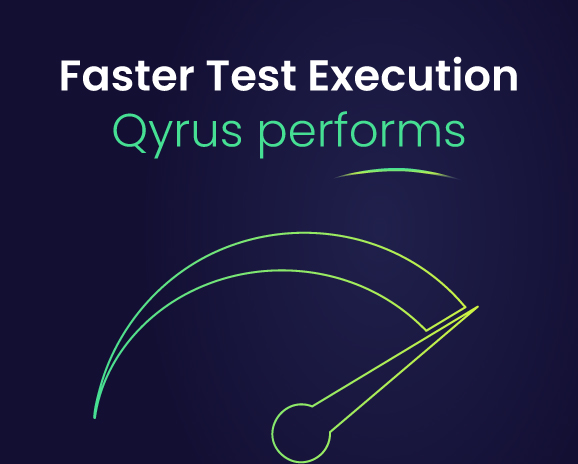Integrating Testing Platform into Your Mobile CI/CD Pipeline

Traditional manual testing methods are time-consuming and prone to human error. To address these challenges, automation testing has emerged as a vital component of modern development pipelines. By automating repetitive test cases, teams can significantly accelerate their development cycles, improve product quality, and reduce the risk of costly defects.
What is CI/CD?
Continuous Integration (CI) and Continuous Delivery (CD) CI/CD pipelines have become the cornerstone of modern software development practices. CI involves frequently integrating code changes into a shared repository, followed by automated builds and tests. CD extends this process by automatically deploying tested code to production environments. CI/CD pipelines enable teams to deliver software updates more rapidly and reliably by streamlining the development and deployment process.
Automation Testing Tools for CI/CD
As mobile app development becomes increasingly complex, integrating robust testing tools into your CI/CD pipeline is crucial. It is essential for ensuring the quality and reliability of your software. By automating test cases, you can significantly improve efficiency, reduce risks, and accelerate your development process.
One of the best testing tools for CI/CD is Qyrus. It offers seamless integration capabilities that can enhance your existing workflow and improve your app quality. Let’s explore how to effectively integrate Qyrus into your mobile CI/CD pipeline.
Version Control Integration
Qyrus supports integration with popular version control systems, allowing your test scripts to evolve alongside your application code:
- GitHub Integration
Qyrus offers comprehensive GitHub integration:
- Configuration Setup:
- Navigate to the Integrations page
- Select GitHub from the “Continuous integration” tab
- Provide configuration name, GitHub URL, username, and token
- Optionally select a GitHub organization
- Choose Qyrus projects to link with GitHub
- Linking Folders to Test Suites:
- Navigate to a linked project and hover over a test suite
- Click the GitHub icon to open the side panel
- Select GitHub repository and branch
- Specify folder path for pushing scripts
- Use “Push Selected” or “Push All” to upload scripts
- Linking Files to Test Scripts:
- Similar process to linking folders, but for individual scripts
- Specify the file path for the script in GitHub
- Pulling Updates:
- Use the “Pull” option in the side panel to fetch the latest changes
- Select the repository, branch, and folder/file path
- Choose between pulling all or selected scripts
- Configuration Setup:
- Bitbucket Integration
Bitbucket integration follows a similar pattern to GitHub:
- Configuration Setup:
- Navigate to the Integrations page
- Select Bitbucket from the “Continuous integration” tab
- Provide configuration details, including workspace
- Linking and Pushing:
- The process is similar to GitHub for both suites and individual scripts
- Bulk Operations:
- Qyrus supports bulk pushing and pulling of scripts with Bitbucket
These integrations ensure that your test scripts are version-controlled and synchronized with your application code.
Read more here: ‘Game-changing Bitbucket Integration‘.
- Configuration Setup:
- GitHub Integration
Continuous Integration Server Integration
While Qyrus doesn’t mention specific CI server integrations, its robust API support allows for easy integration with popular CI tools like Jenkins, GitLab CI, or CircleCI. You can trigger Qyrus test executions as part of your CI pipeline, ensuring that every code change is thoroughly tested.
Test Management Tool Integration
- Xray Integration
- Configuration:
- Set up Xray client ID and secret
- Connect to Jira configuration
- Select Jira projects
- Usage:
- Link Qyrus scripts to Xray issues
- Execute tests and automatically update Xray with results
Want to know how Qyrus can make your testing more efficient with Xray Integration? Click here
- Configuration:
- TestRail Integration
- Configuration:
- Provide TestRail account details
- Select TestRail and Qyrus projects to link
- Usage:
- Link Qyrus test cases to TestRail test runs
- Automatically update TestRail with execution results
- Support for relinking test suites to different TestRail runs
A 5-min blog that might interest you: TestRail Integration with Qyrus – Your Test Case Management Conductor
- Configuration:
- Jira Integration
- Configuration:
- Set up Jira domain, user email, and API token
- Select teams and projects to link
- Usage:
- Connect Qyrus projects with Jira for seamless issue-tracking
- Create test scenarios directly from Jira tickets using AI
- Update Jira issues with test execution results
These integrations help maintain traceability between requirements, test cases, and defects throughout your CI/CD pipeline.
- Configuration:
- Xray Integration
Notification and Collaboration Integrations
To keep your team informed about test results:
- Slack Integration
- Configuration:
- Set up Slack webhook URL
- Configure custom messages for test results
- Usage:
- Receive real-time notifications of test execution results
- Customize messages for different execution events
- Configuration:
- Microsoft Teams Integration
- Configuration:
- Similar to Slack, set up webhook URL for Teams
- Configure message templates
- Usage:
- Receive notifications in Teams channels
- Keep your team updated on test progress and results
- Configuration:
- Slack Integration
Leveraging Integrations for Efficient CI/CD
By utilizing testing tools for CI/CD, you can create a comprehensive mobile CI/CD pipeline:
- Version Control: Keep test scripts synchronized with application code
- Continuous Integration: Trigger Qyrus tests automatically on code changes
- Test Management: Maintain traceability from requirements to test results
- Collaboration: Keep the team informed with real-time notifications
This integrated approach enables:
- Faster feedback loops
- Improved collaboration between development and QA teams
- More efficient development cycles
- Higher overall app quality
Remember to regularly review and update your integration configurations to ensure they continue to meet your team’s evolving needs. With Qyrus’ flexible integration options, you can create a tailored CI/CD pipeline that optimizes your mobile app development process.





